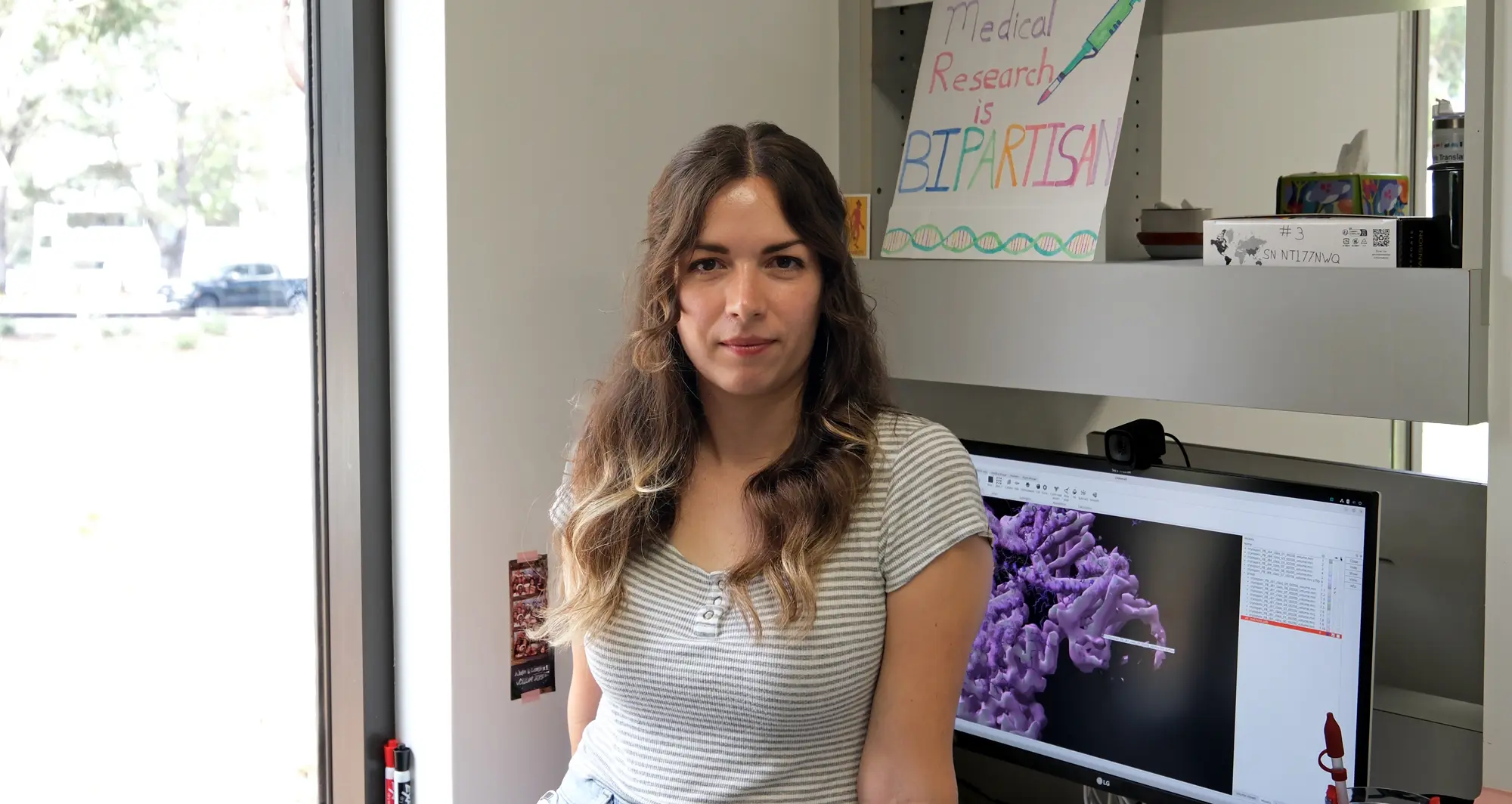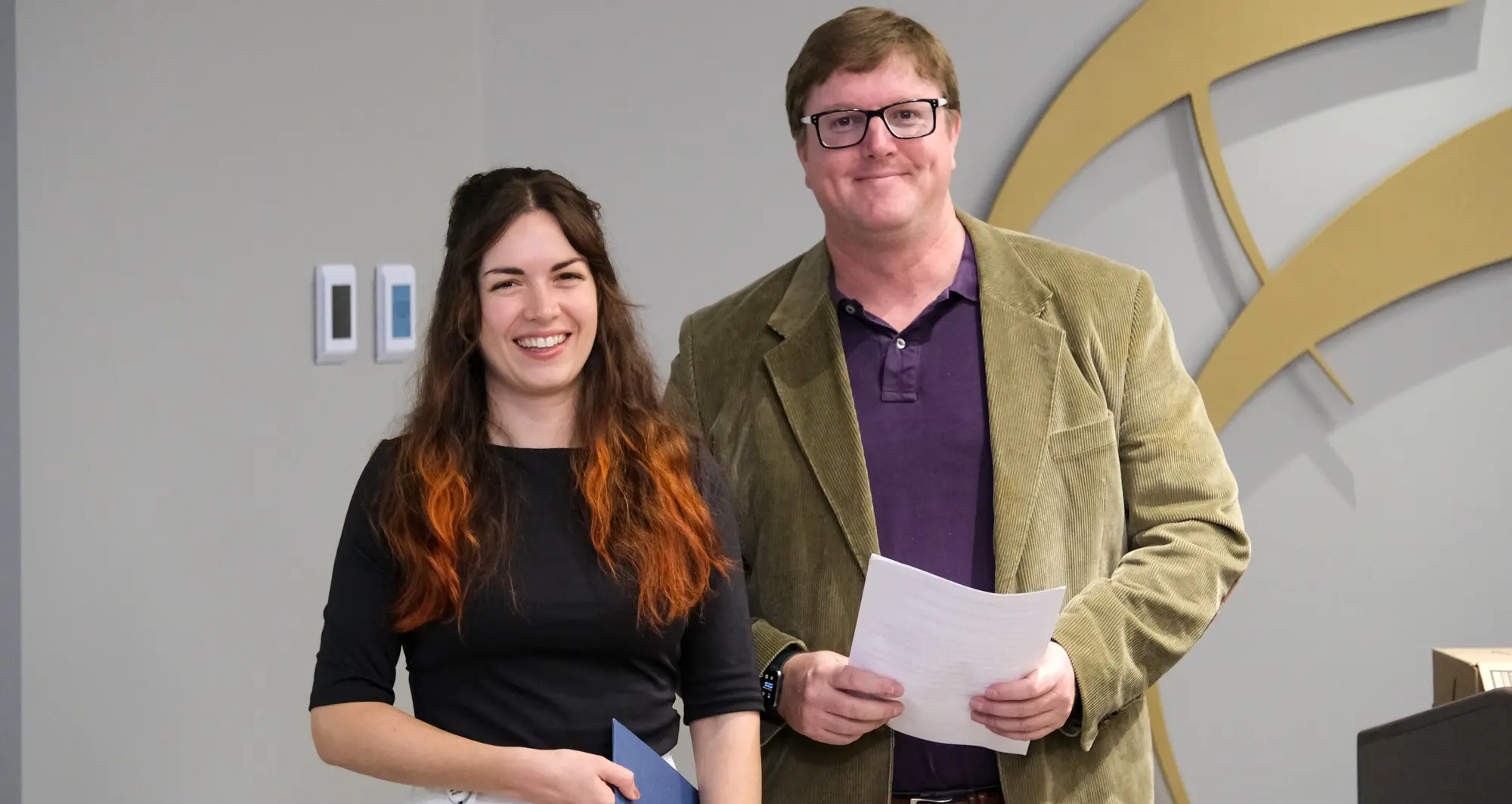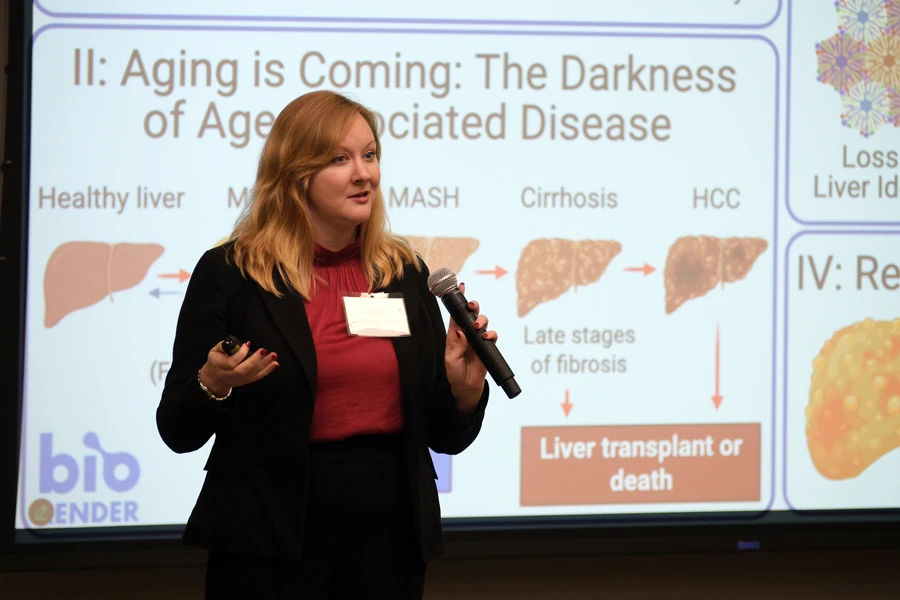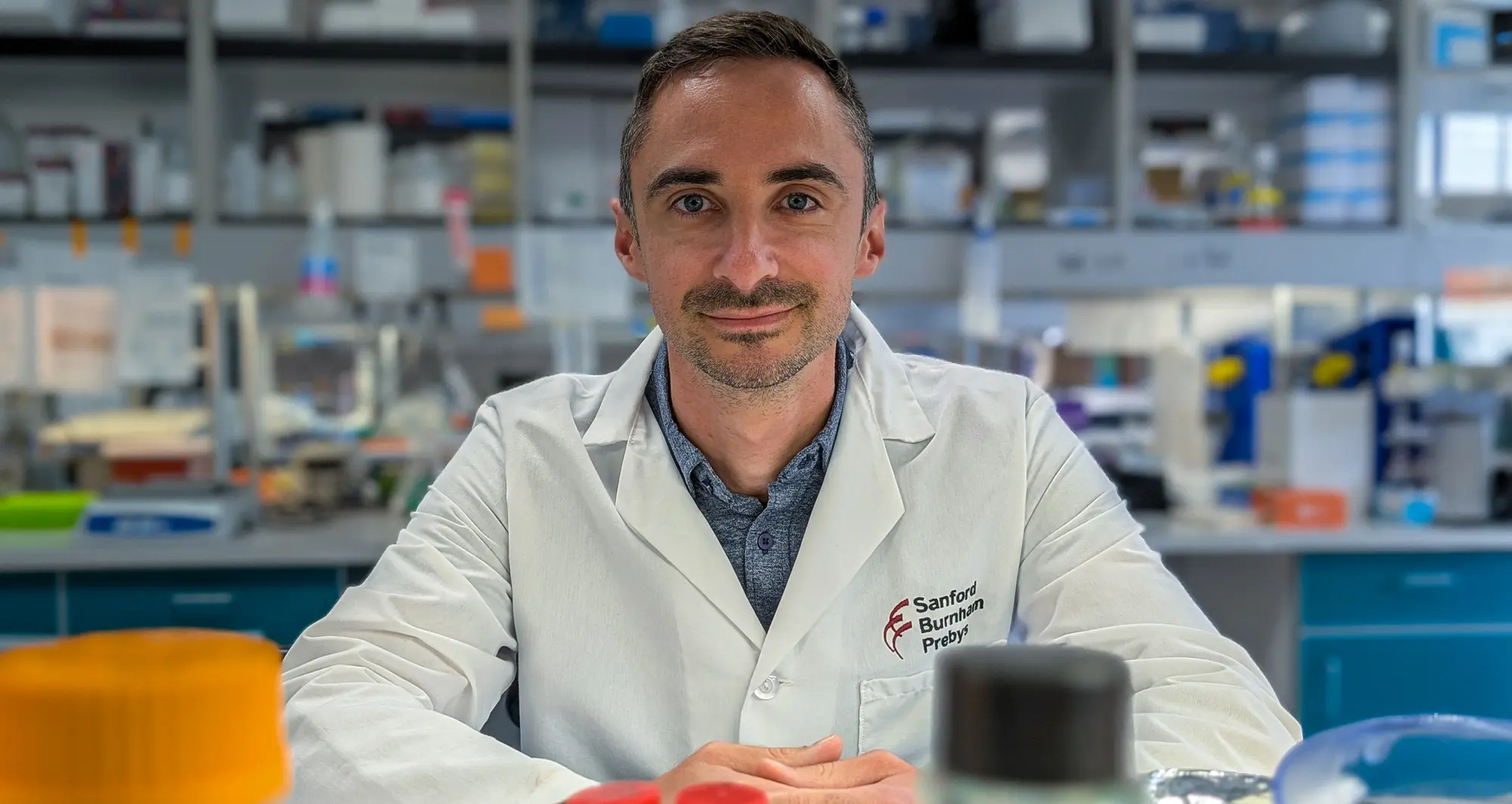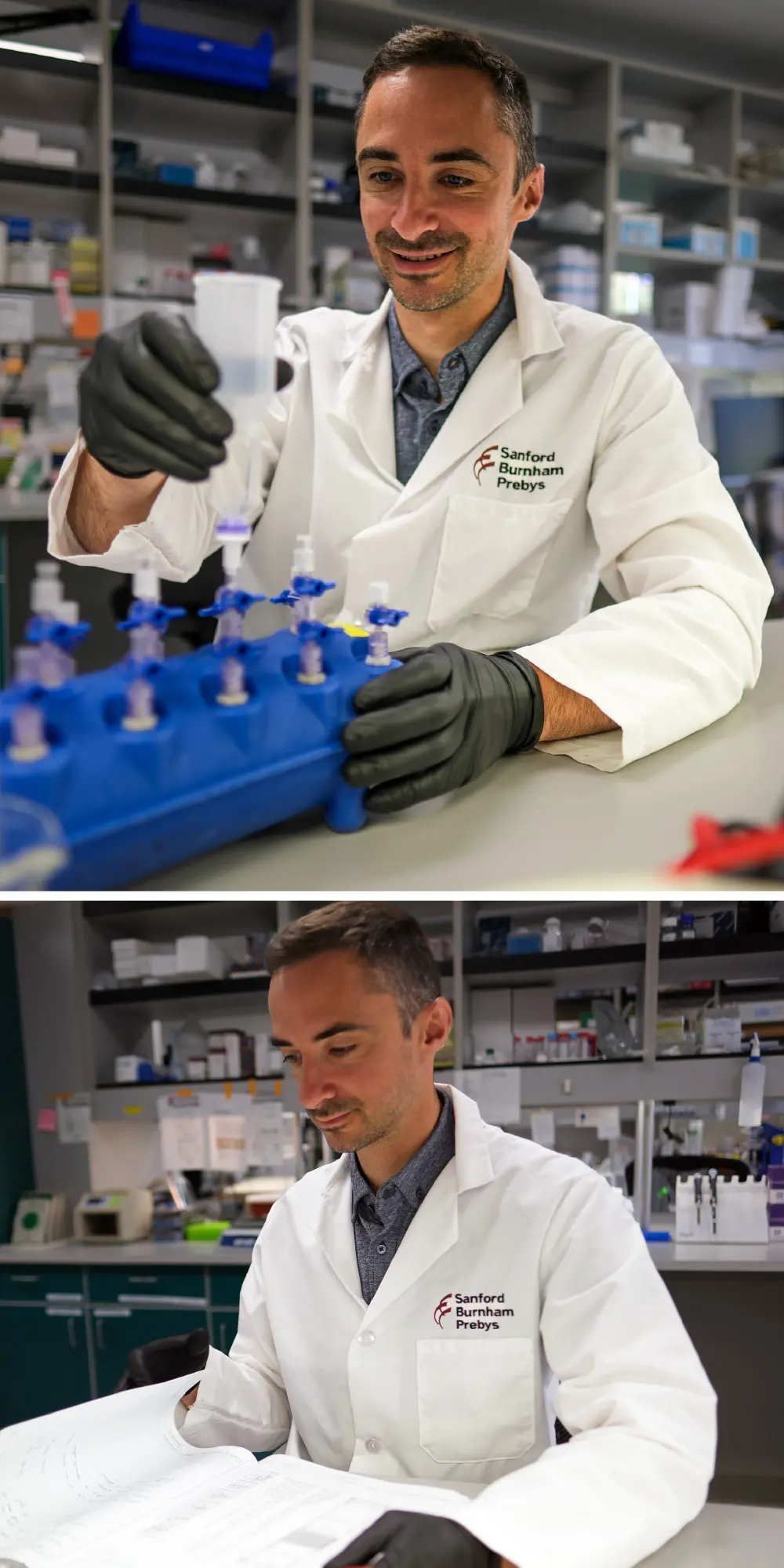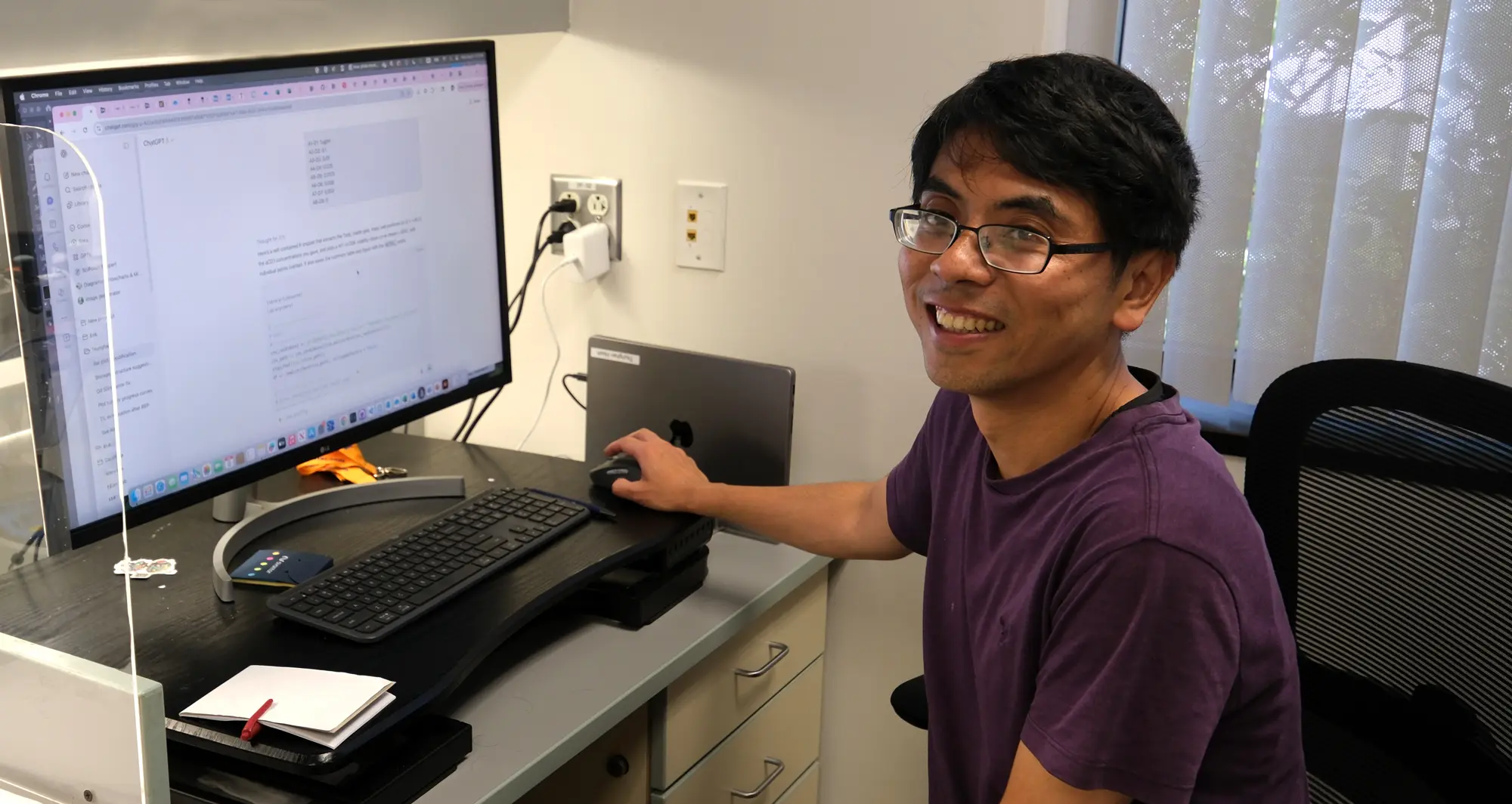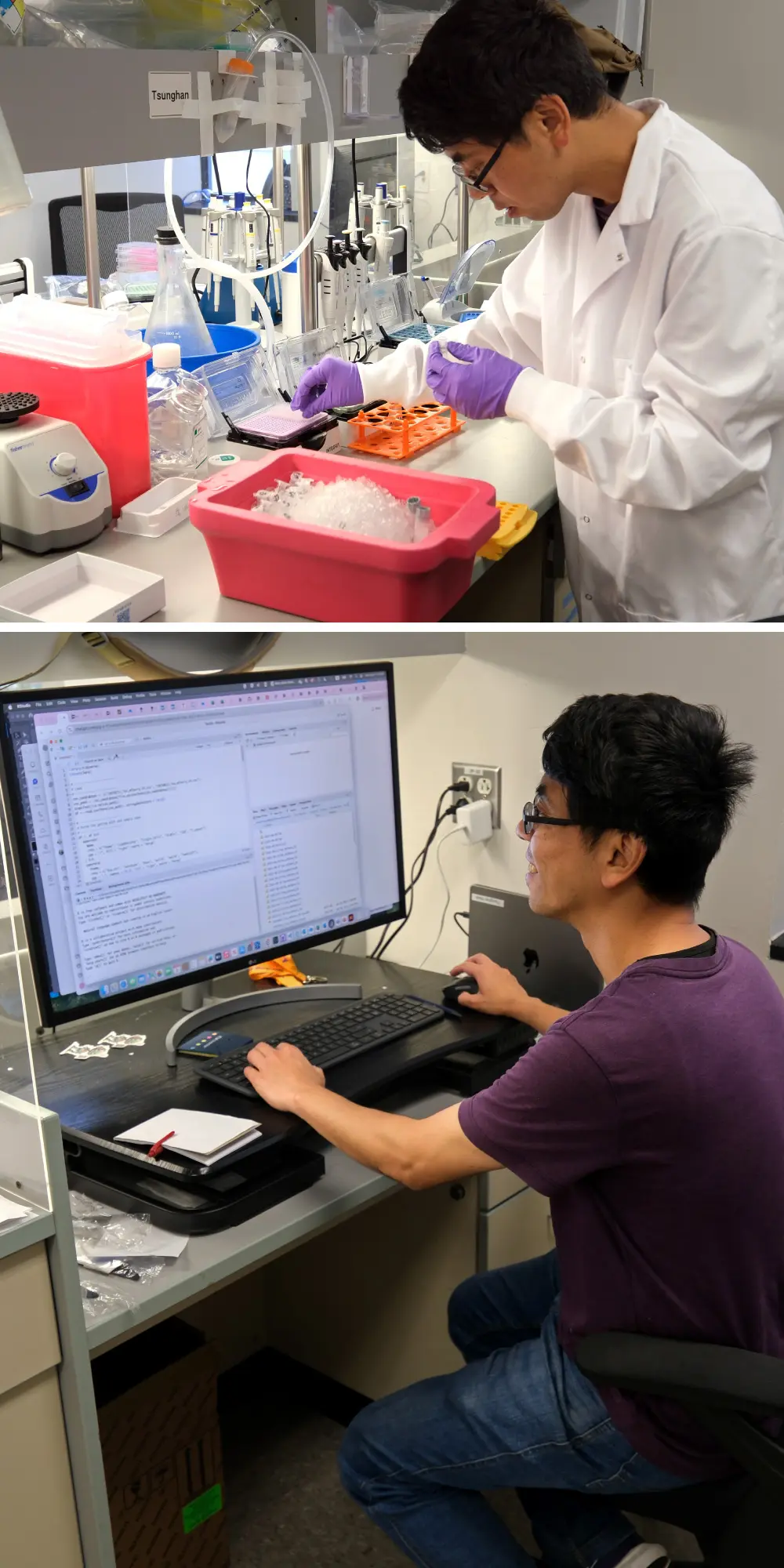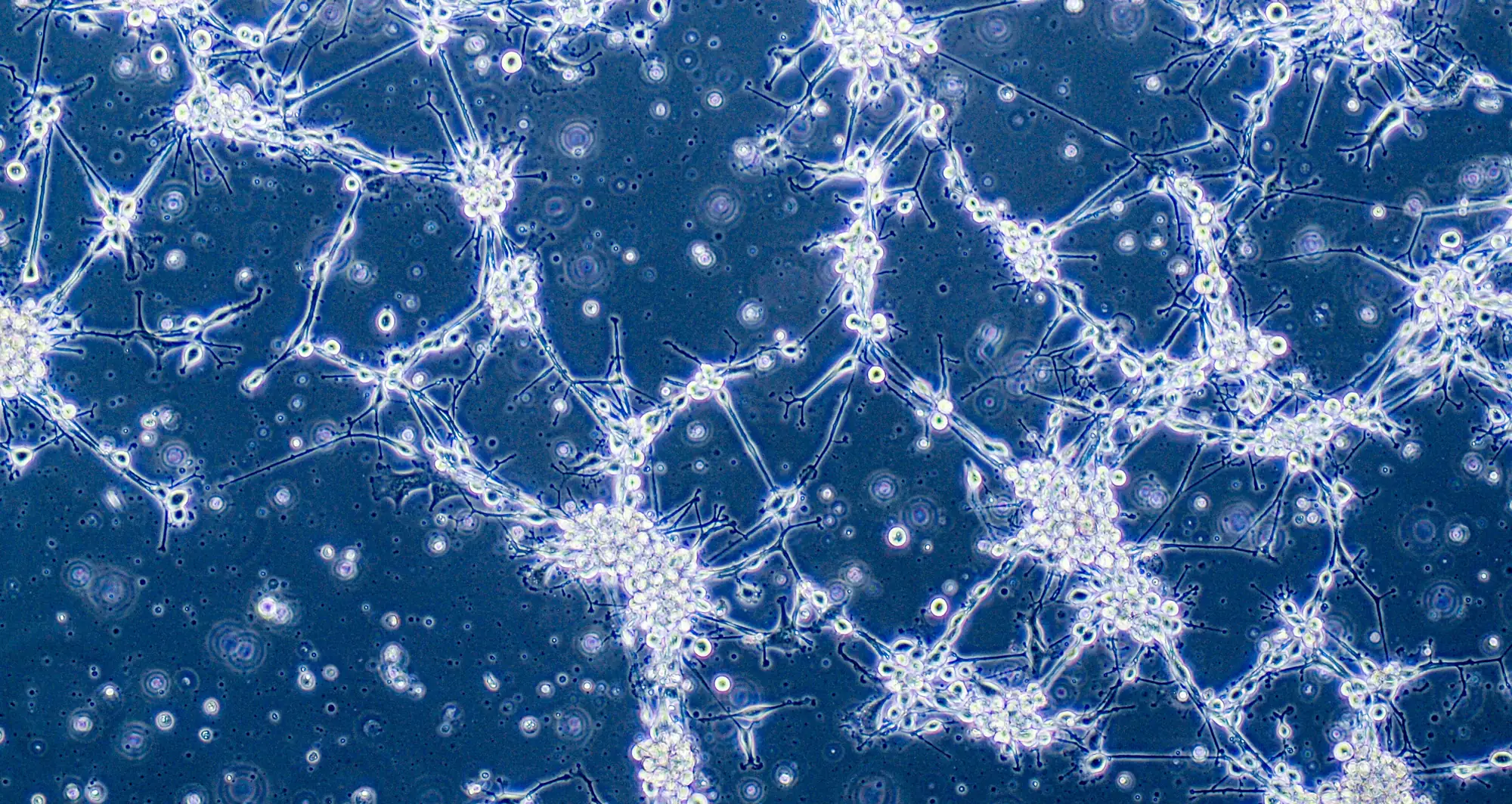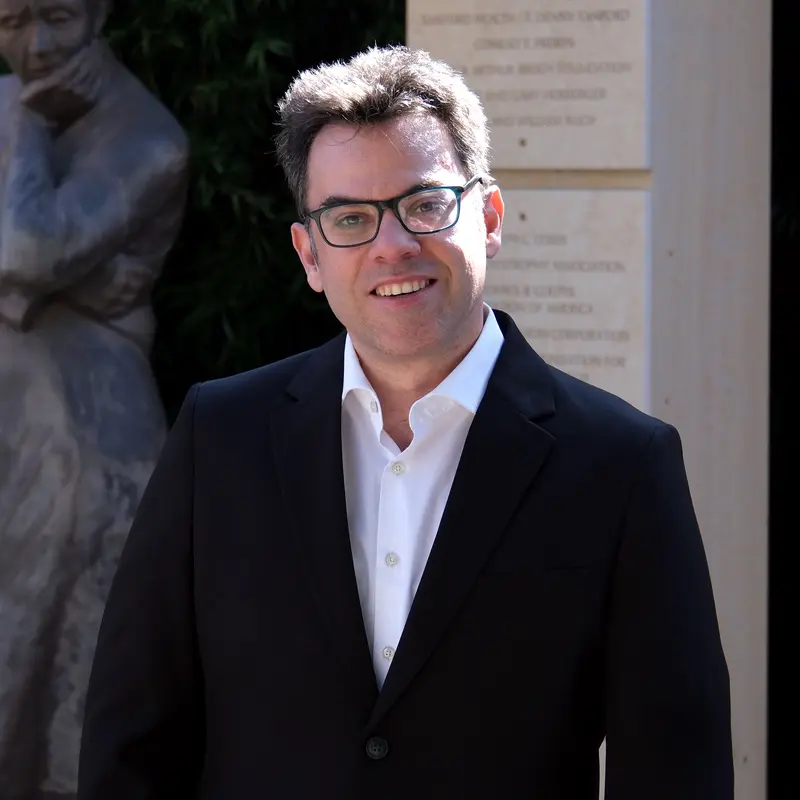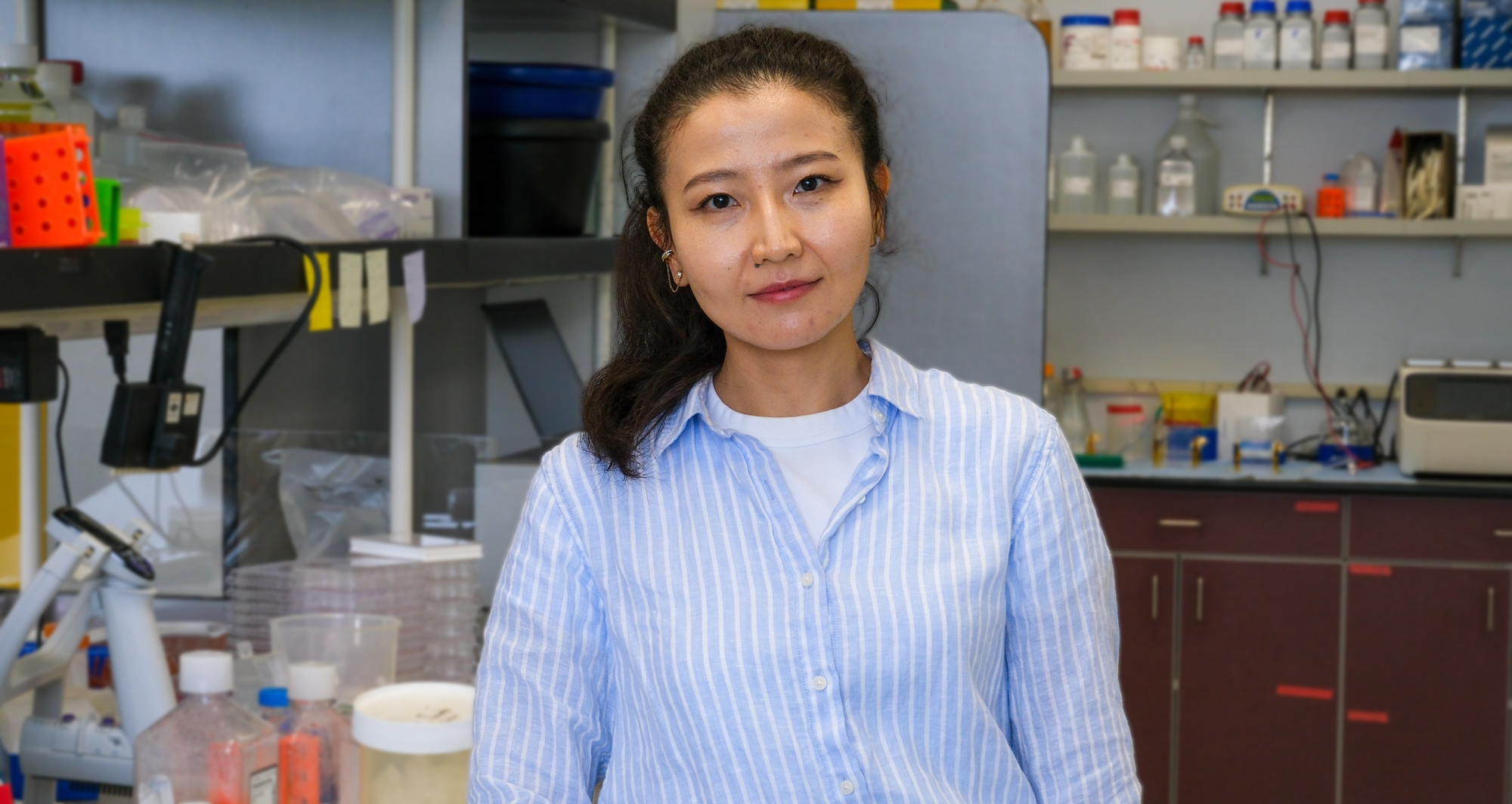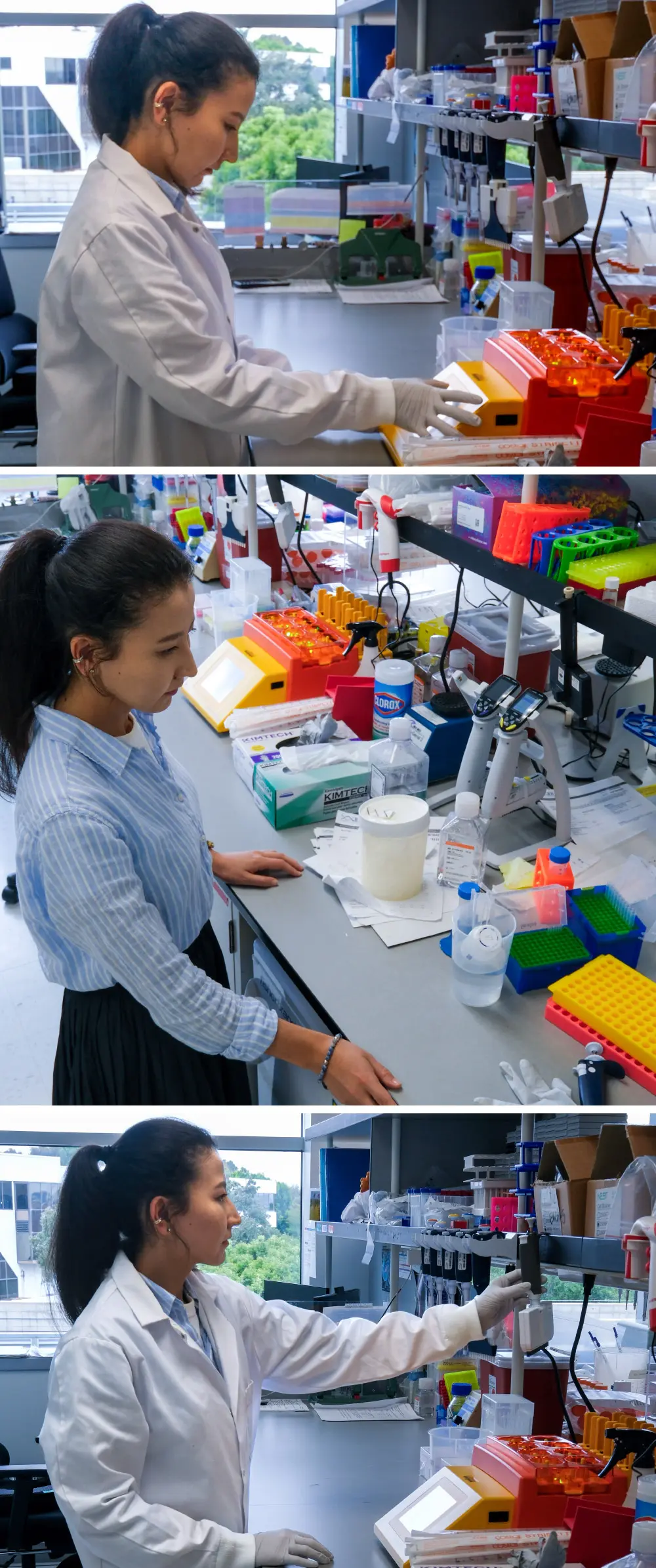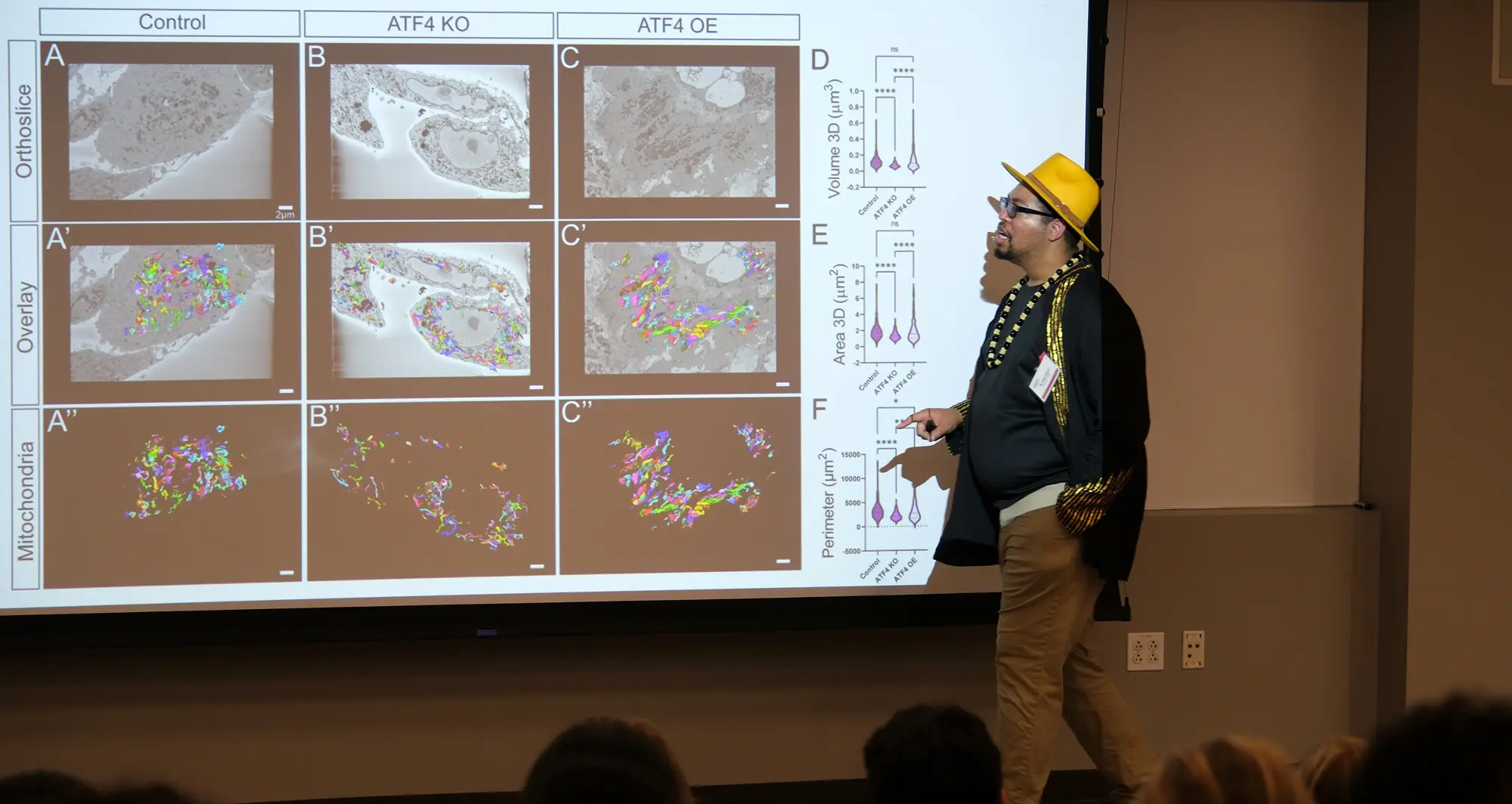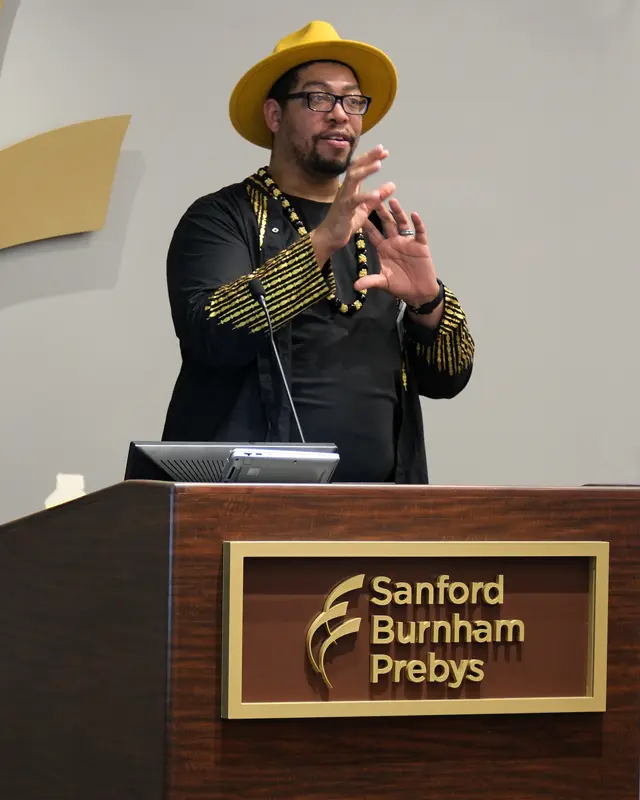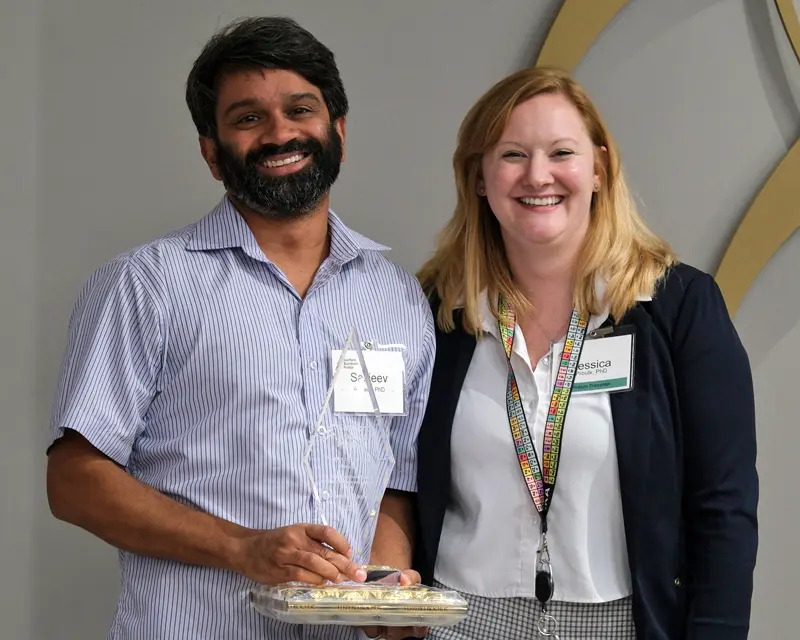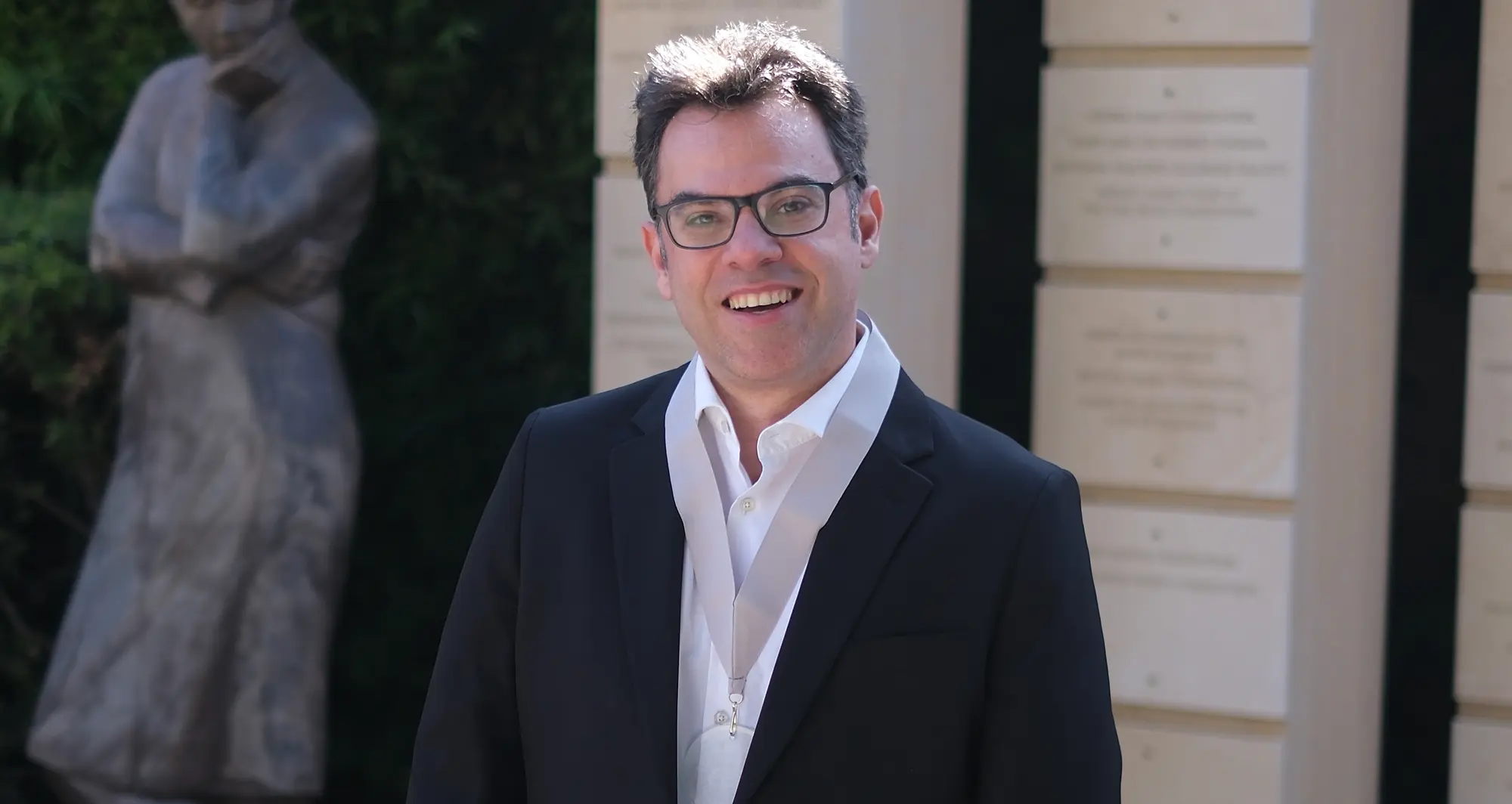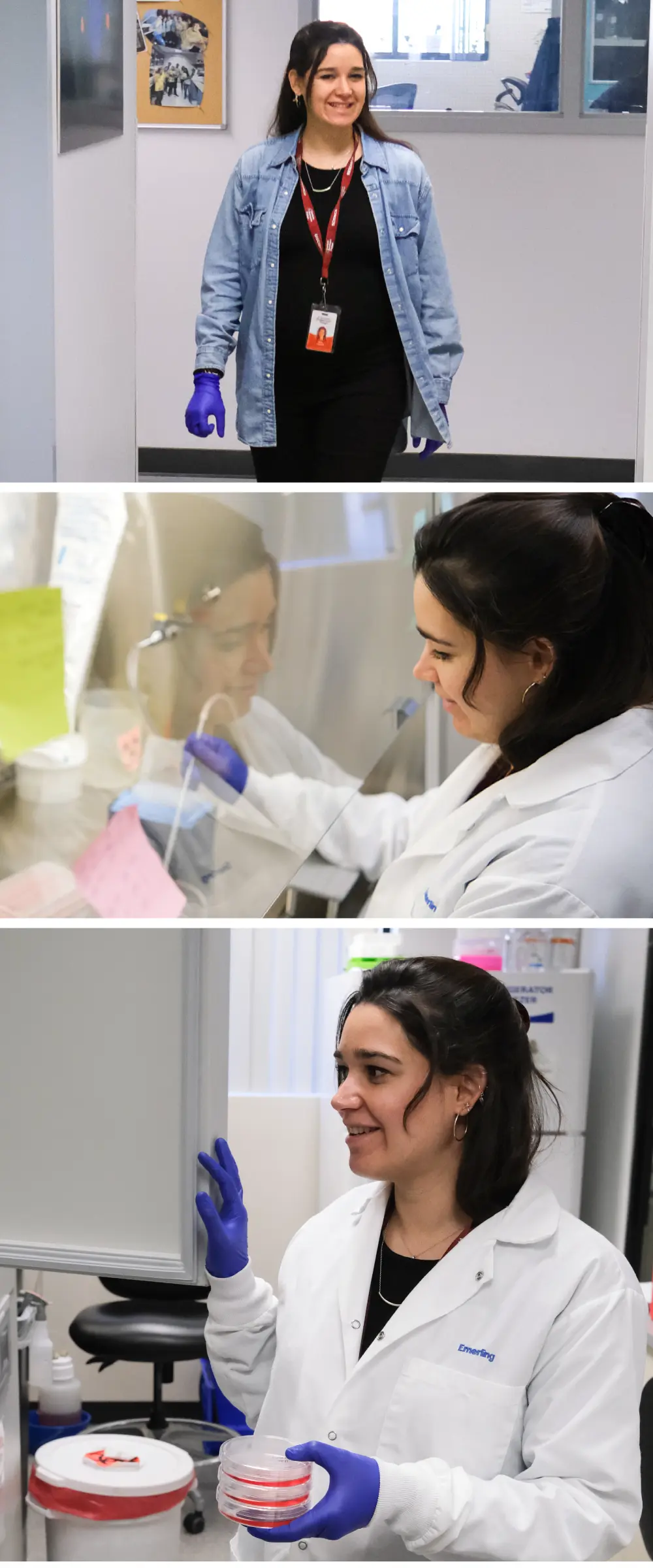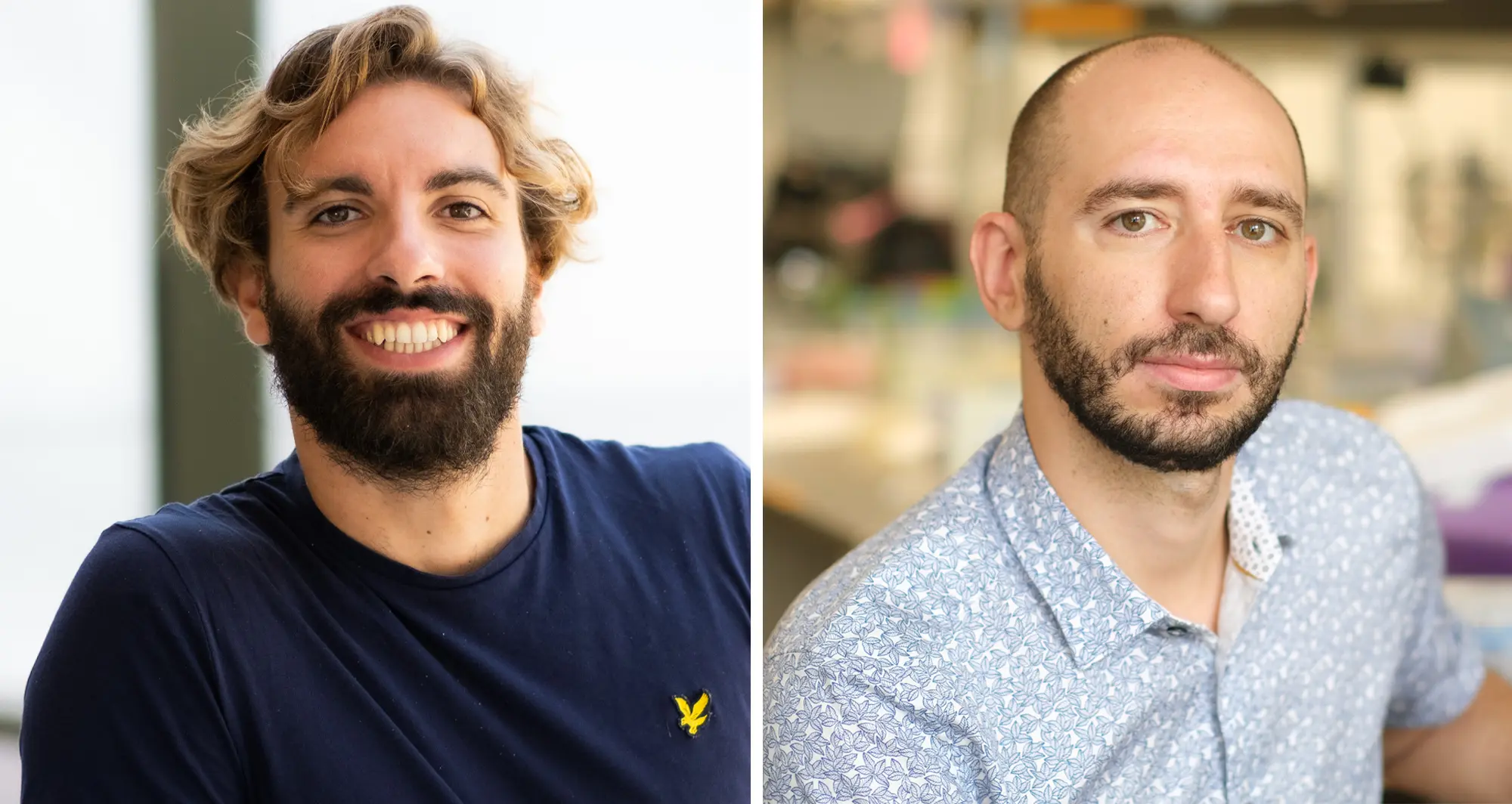Meet one of our early-career scientists at Sanford Burnham Prebys: Alexandra Houser, PhD, a postdoctoral researcher in the lab of Shengjie Feng, PhD. Houser is a structural biologist studying ion channels to better understand how the brain works.
When and how did you become interested in science?
A family friend of ours was a scientist. When I was younger, she would take me to the woods near where my dad worked as a mechanic to look for owl pellets and put the tiny skeletons inside the pellets back together.
When I ended up going to community college, I found the science courses were the most interesting. I earned my associate’s degree in biology and then transferred to a university.
What did you imagine you would be doing professionally, and how did it evolve?
I am always in awe of people that knew what they wanted to do their entire lives because I had no idea.
I remember back when I didn’t even know that research happened on university campuses. I was really surprised when people told me I could go work in a lab. I remember asking what class to sign up for and they said I could just go talk to a scientist if I was interested in what they were doing.
Soon after that, I started working in a lab on motor proteins such as kinesin, which I found fascinating. When I was getting closer to graduating with my bachelor’s degree, my mentor said I had a lot of potential as a scientist and that I should go to graduate school.
I told her that I couldn’t afford grad school, and she told me about tuition remission and getting paid a living stipend. I thought, “Oh, my god, I have to do this!”
Over time, I’ve gotten more and more into biochemistry, and now I’m here working as a biochemist.
What brought you to the Feng lab at Sanford Burnham Prebys?
I learned about her research because we were working in similar fields. In grad school, I worked on sodium ion channels. Shengjie works on potassium ion channels.
I used to host an ion channel journal club in graduate school. I gave a presentation on one of her papers and loved it and then saw that she was starting a lab.
Sodium and potassium ion channels play a big role in the brain. What generates the electrical signal is the difference between sodium and potassium inside and outside the cell. It’s the balance of those two ion channels that turn neurons on or off.
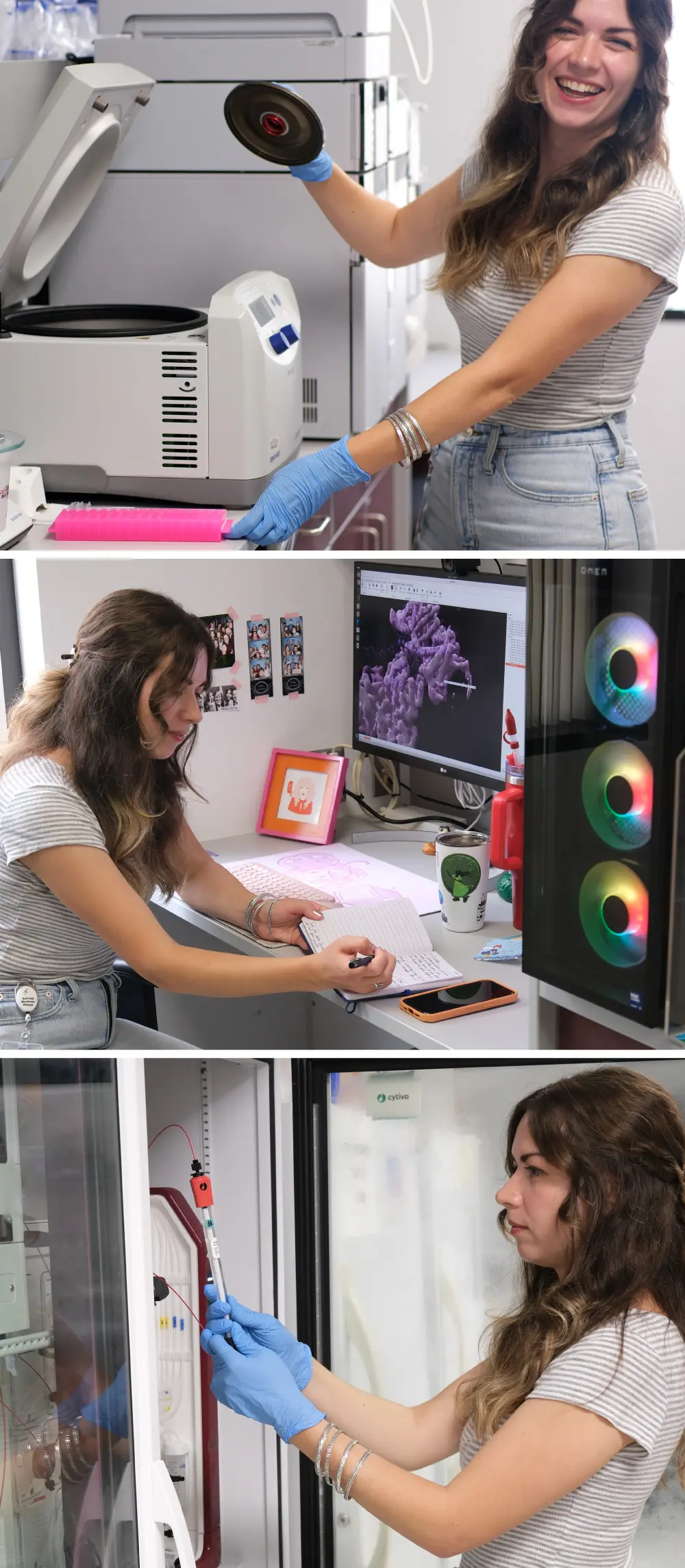
In graduate school, I basically looked at how neurons turn on through sodium ion channels, and now I’m looking at how they turn off via potassium ion channels.
What are the key areas of research you focus on?
Someone once told me that some people prefer areas of science that are broad in scope and where you have to make more generalized assumptions, and others like areas of science where you can unequivocally determine if something is this or that.
I am in the unequivocally this or that camp. I do what I like to call protein selfies. When you take a selfie, you take a bunch of pictures and pick the best one. With a protein selfie, I take more than a bunch. A few million more.
Because proteins are so small, I need to average these millions of pictures together to see what it looks like. And then with an image of the structure, we can get ideas of what the protein does and how.
What motivates you about your research?
I’ve worked a lot of jobs in my life, but this feels different. Sometimes I just stay late because I’m excited and it’s fun. I may be seeing something for the first time that no one else has ever seen.
When you’re doing basic research, sometimes you just find really cool stuff!
What do you like about working here?
I love the support that’s here for postdoctoral researchers. Honestly, it’s been almost universally positive. I don’t think that is true everywhere.
The postdoc community here is so active organizing standout events such as family day and holiday gatherings. We have tremendous opportunities for workshops and industry tours.
I’ve also enjoyed events put on by the Workforce Engagement & Belonging team, especially this summer’s book club. It was great getting to meet people from administrative offices and other labs, all the different people that make up Sanford Burnham Prebys.
How do you hope your work will advance science and/or improve health?
As a basic scientist, I feel like my research will help other researchers make an impact in the future.
I’m doing everything I can to explain a protein’s structure and how it influences function. I imagine someone years from now will use my science to develop a new drug for this protein target. My work can help them understand areas where a drug could bind the protein, for example.
What are your hopes for the next stage in your career?
I’d really like to go into industry. It often goes that the more successful you are as a principal investigator, the less time you can spend at the laboratory bench conducting experiments.
And I love being at the bench.
Have you had an influential mentor?
My undergraduate mentor made a major difference in my career. I had a lot to learn. I didn’t know anything about academic science. He was really good at pushing me but also giving me room to fail.
He taught me so many things that I use all the time, such as how to focus on the big picture of your science. In structural biology, you can analyze your data for five years. Understanding your big question helps you know when you’ve reached the resolution needed to answer this question. Then you can move forward with the next question.
What do you enjoy doing when you’re not in the lab?
I’m a big reader. I read books all the time. My fellow lab members make fun of me because even when I’m eating lunch, I’m always there with my books.
I also like cooking dinner together with friends and going to the beach with my son and my dog.
Postdocs at Sanford Burnham Prebys are pushing the boundaries of science every day through curiosity, collaboration, and innovation. This series highlights their unique journeys, what inspires their work, and the impact they’re making across our labs.
